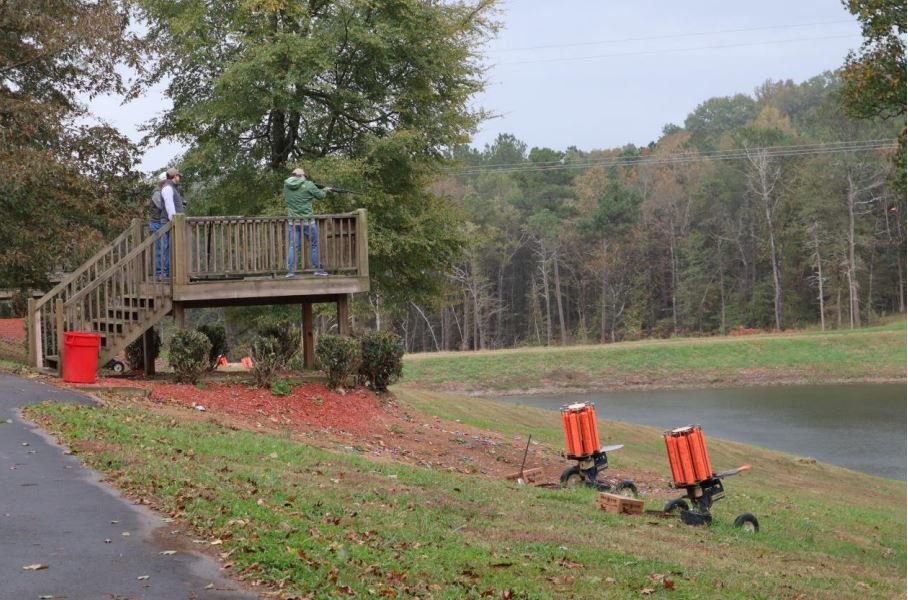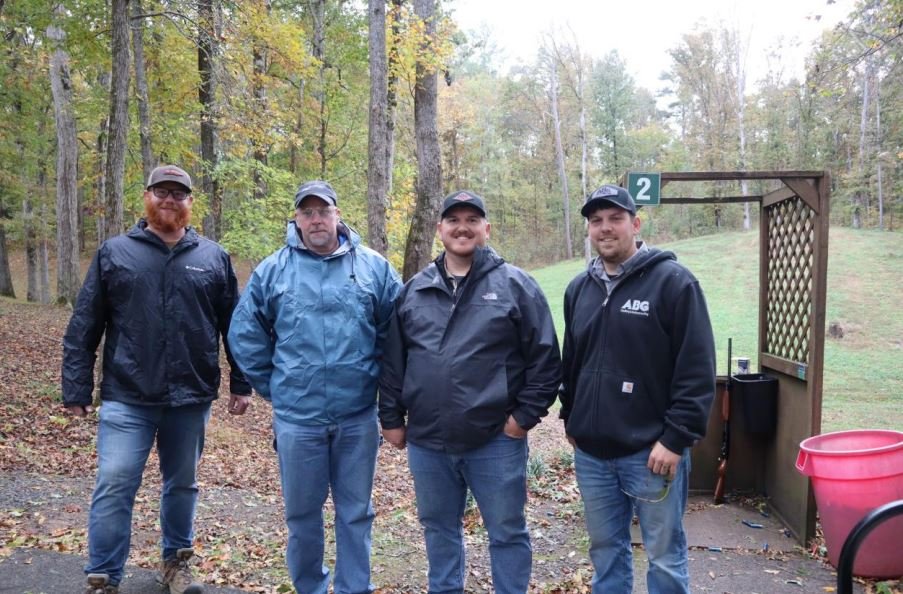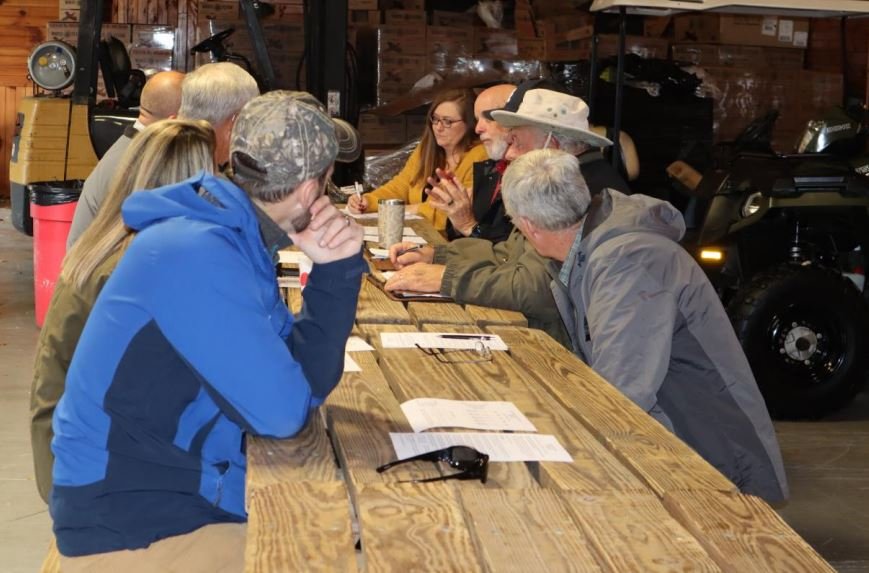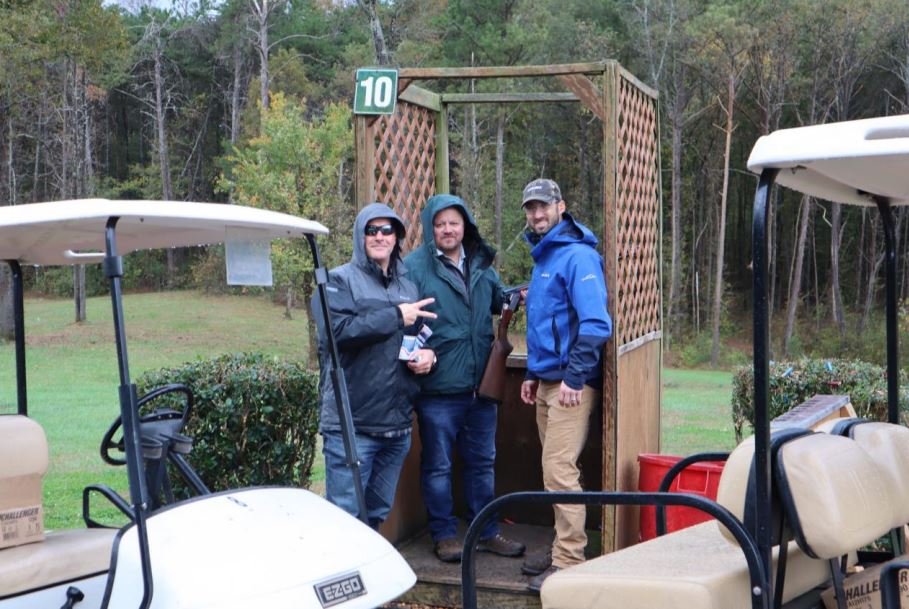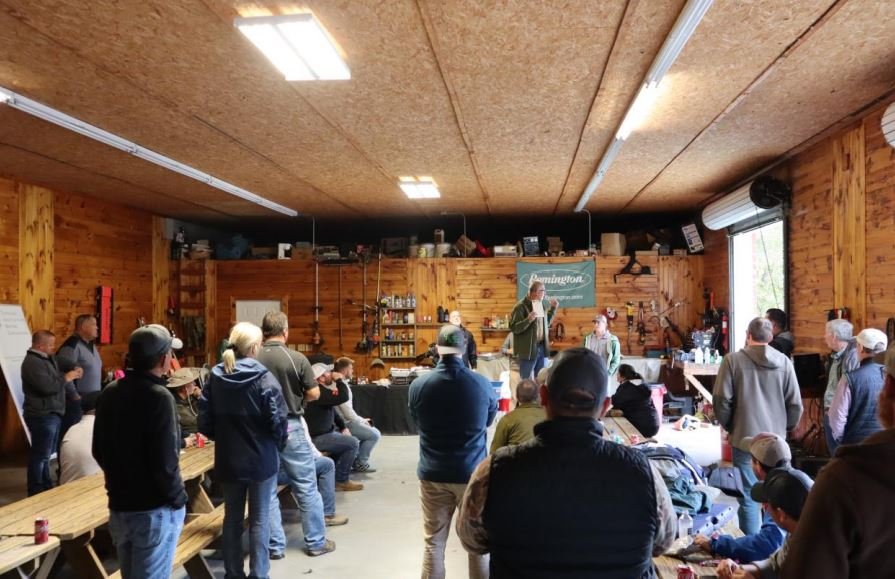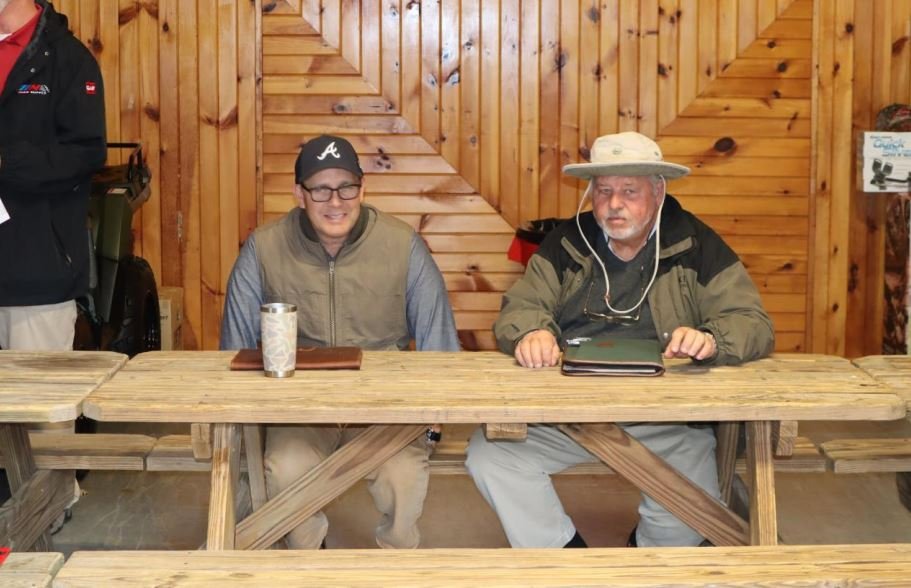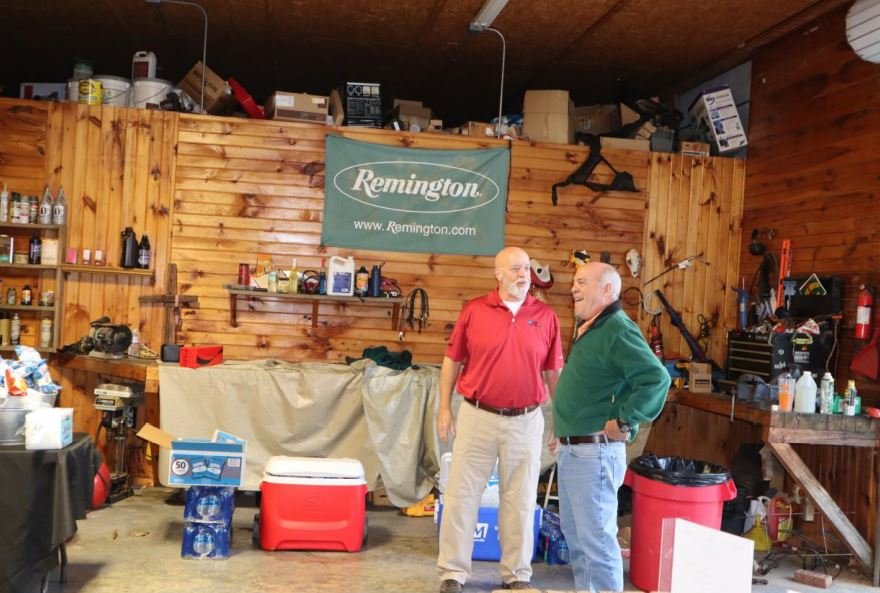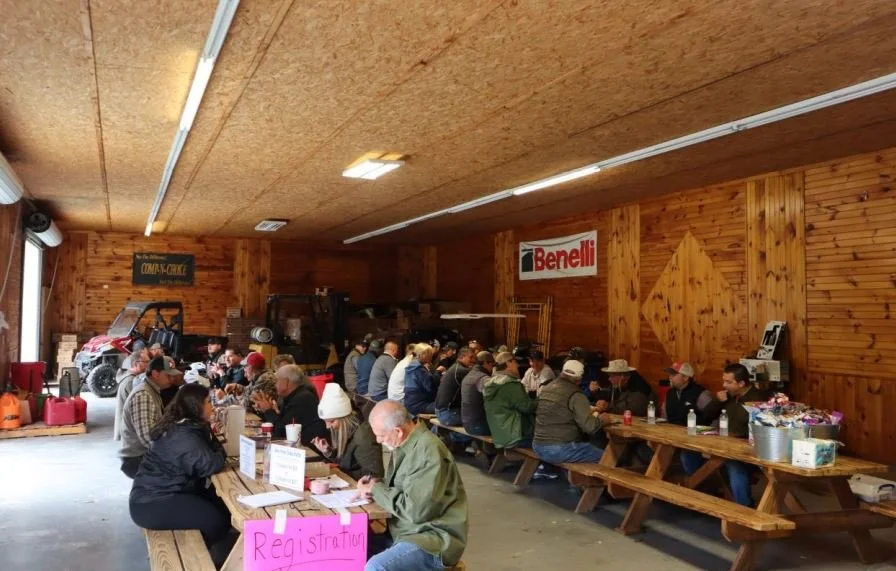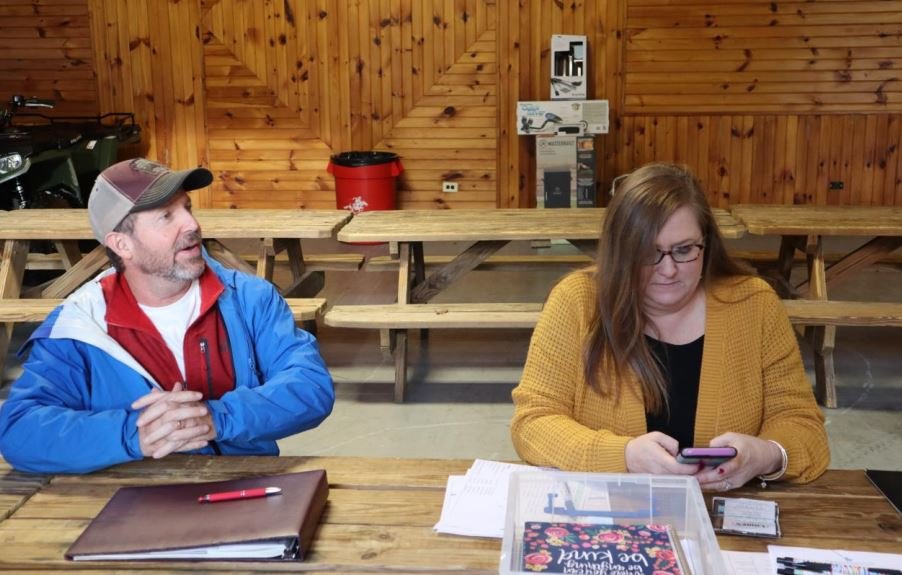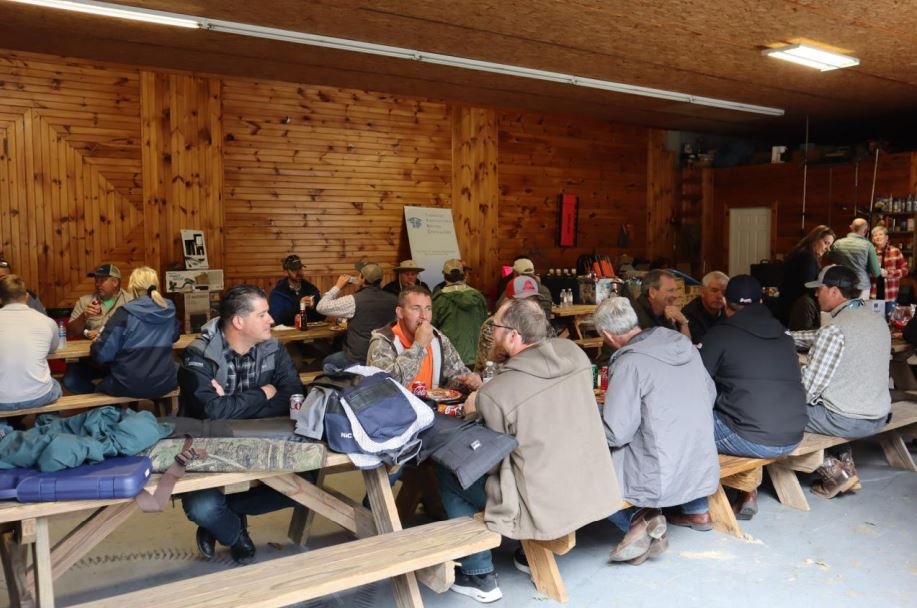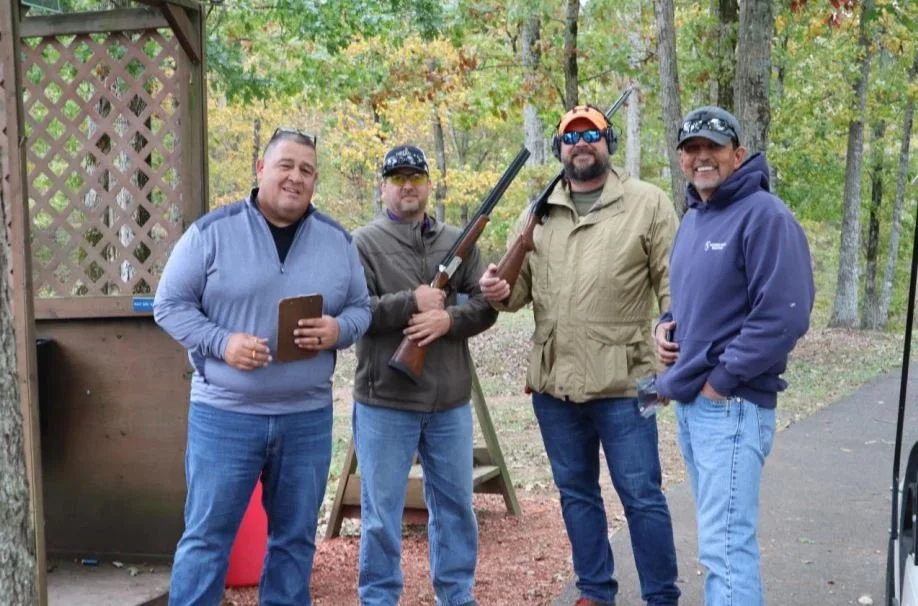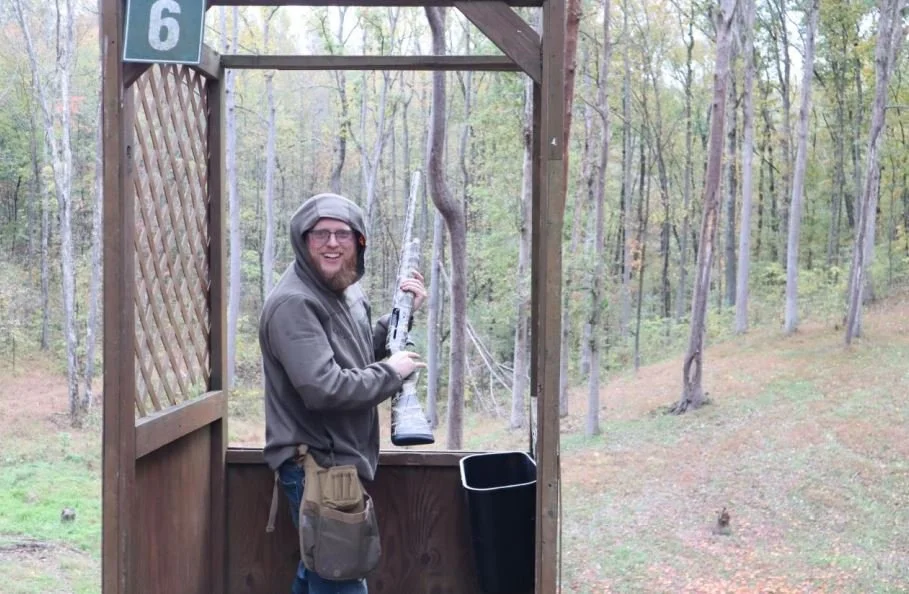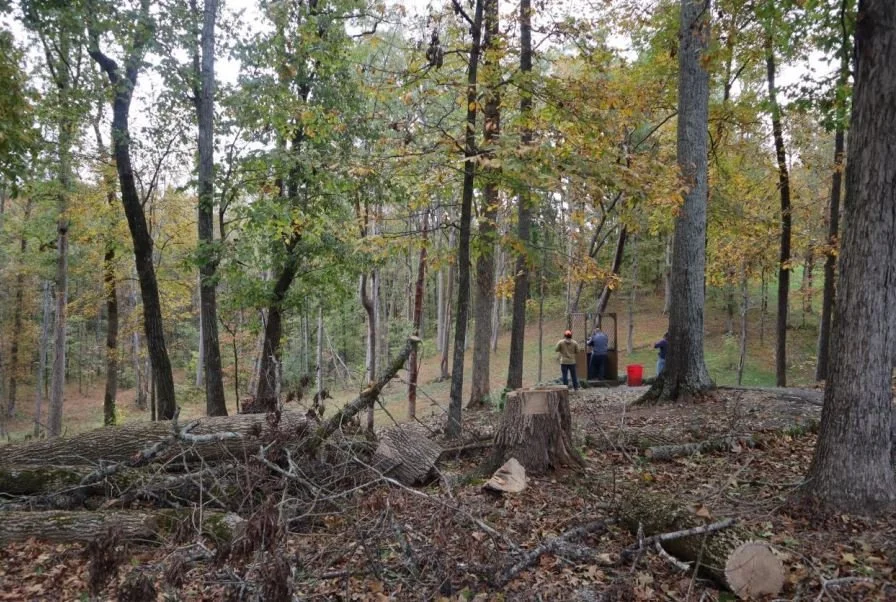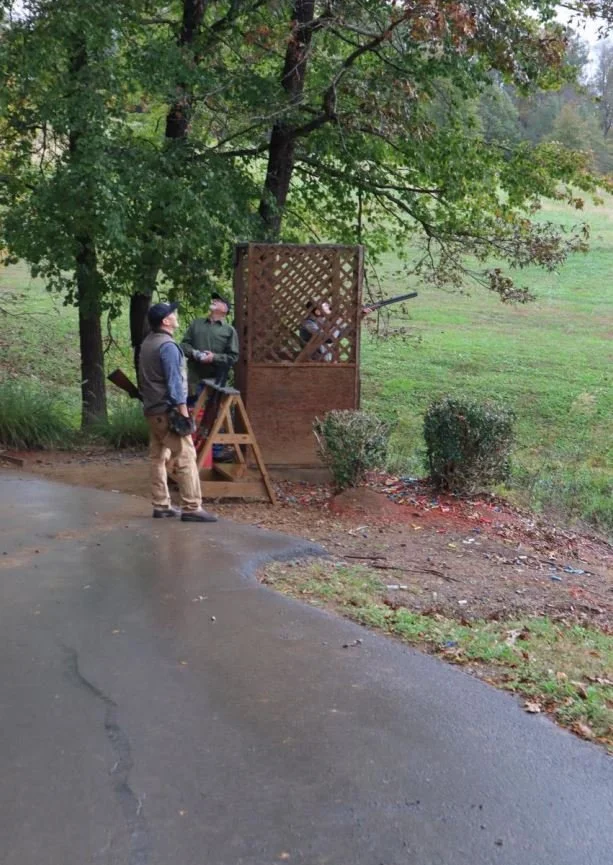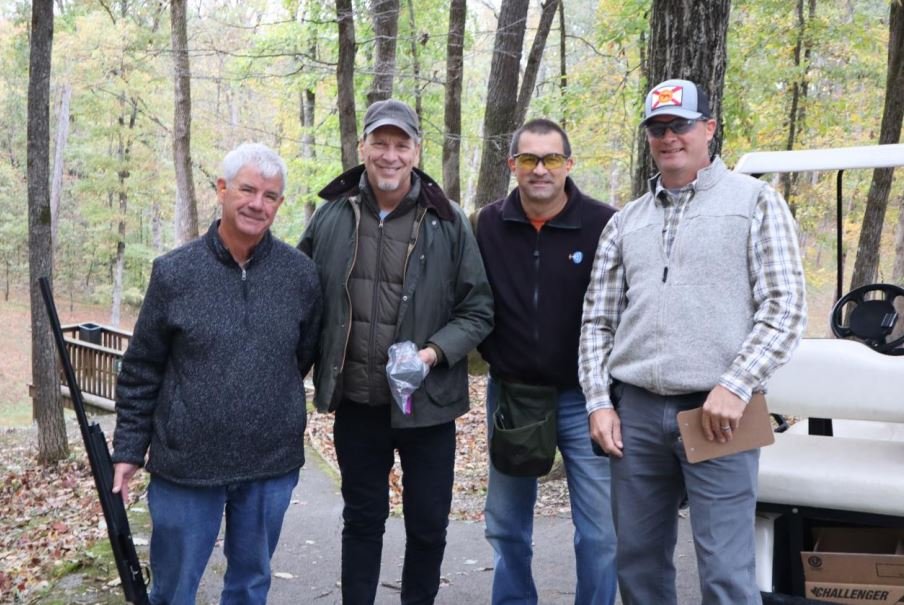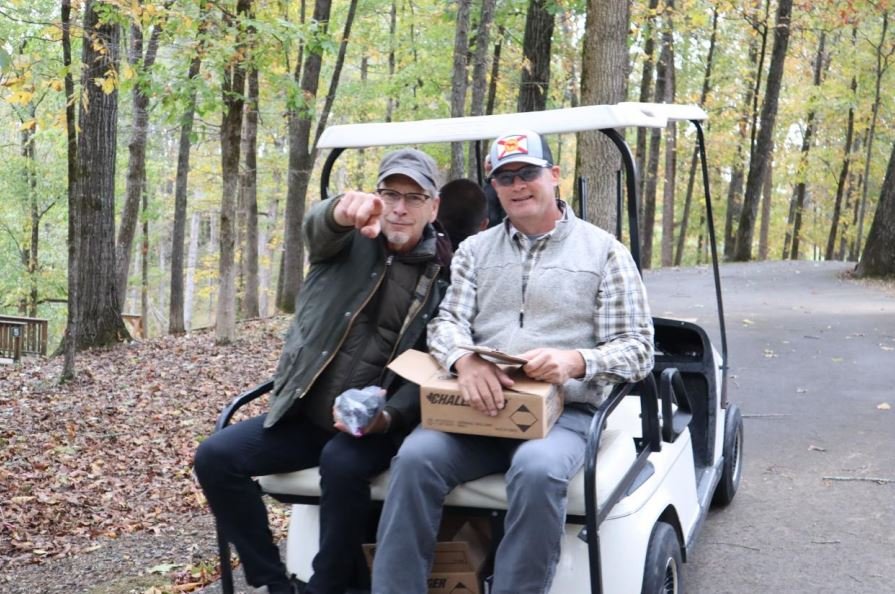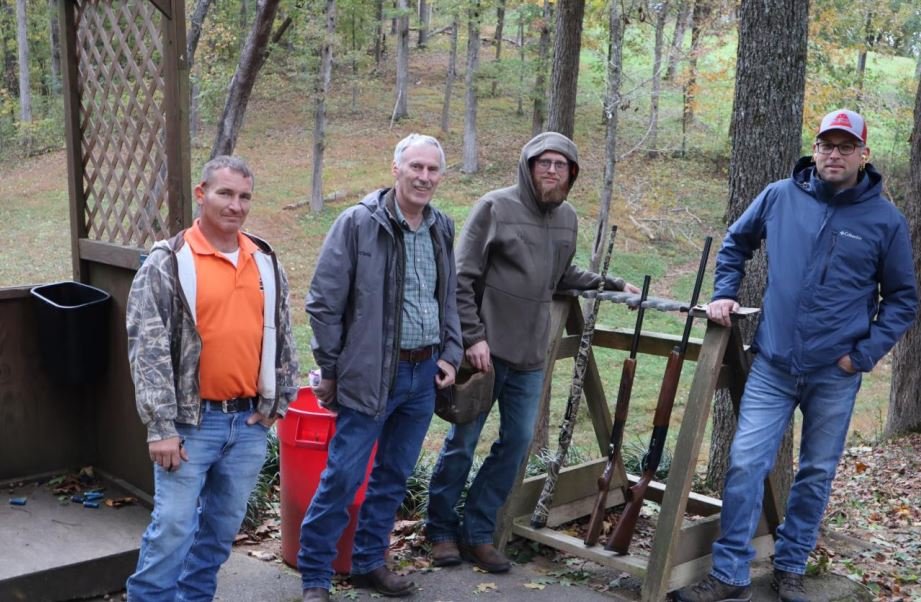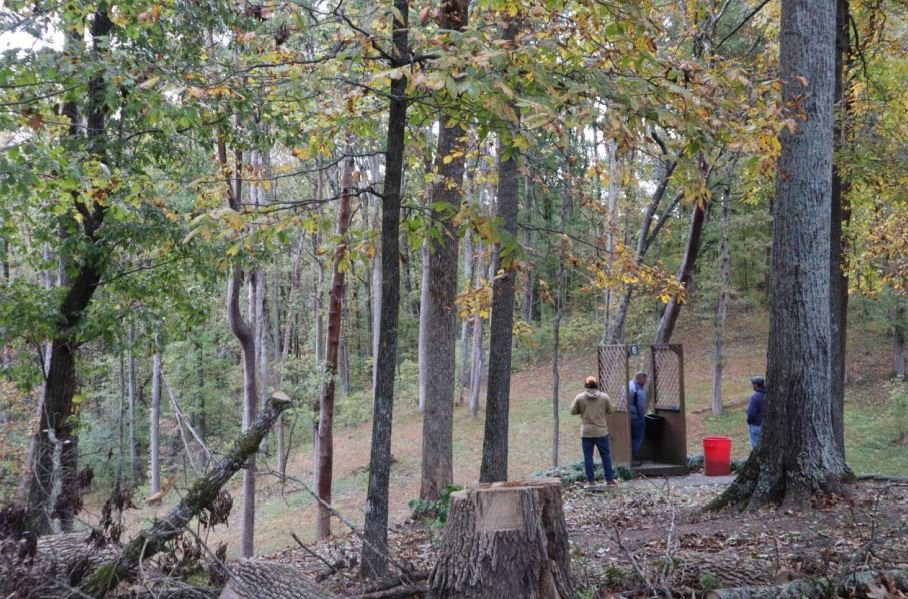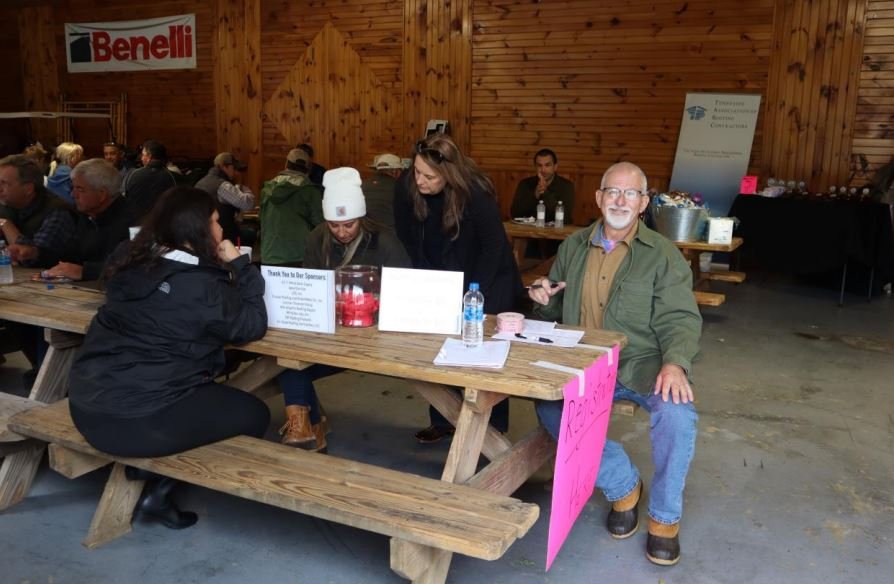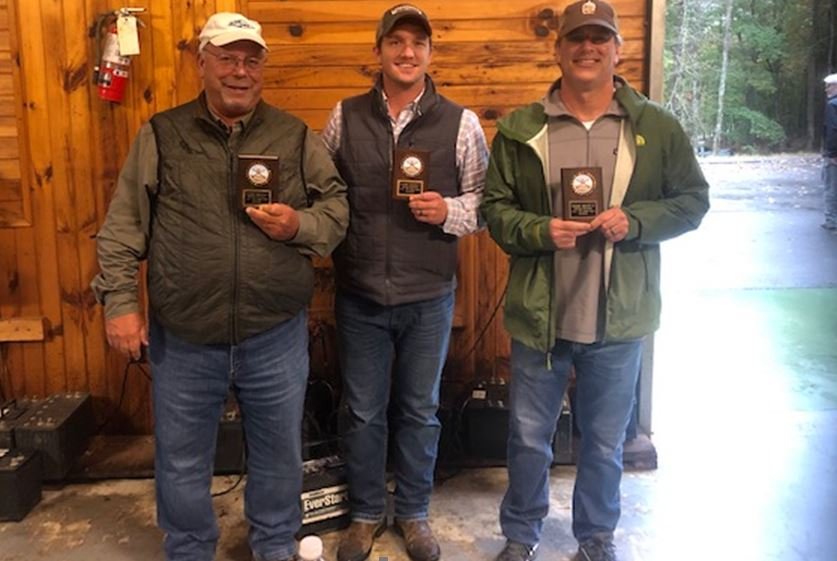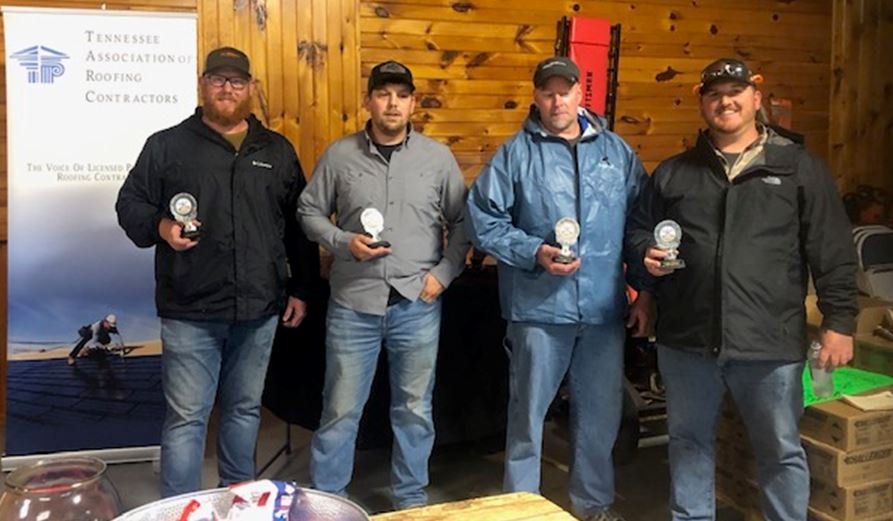2025 Summer Convention Registration is Open!
Register for the Summer Convention at The Beach Club in Gulf Shores, AL on June 11-15, 2025. View more information here!
Save the Date for the 2025 Summer Convention!
The 2025 Summer Convention will be held June 11-15, 2025 at The Beach Club Resort in Gulf Shores, AL. Be on the lookout for more information coming soon!
Spring Golf Tournament Registration Is Now Open!
Register for the Spring Golf Tournament at The Bear Trace at Hamilton Bay in Harrison, TN on April 24, 2025. Click here for more information!
2025 TARC Mid-Winter was a Success!
Thank you to our 2025 Mid-Winter Meeting Sponsors and Attendees! View photos from the meeting here!
2025 Mid-Winter Meeting Registration is open!
Save the Date - January 9-10, 2025 at Drury Plaza Hotel Nashville Franklin -> View more information here!
2024 TARC Fall Skeet Shoot Wrap Up
Thank you to our 2024 Skeet Shoot Sponsors and Attendees! This was a successful event! View photos here
2024 TARC Annual Convention Recap
A great time was had by all. We are busy putting together the photos and other information to share with everyone. If you have any photos that you would like to share with us from the event, please send to Chelsea Langley at clangley@asginfo.net.
Registration is now open for the 2024 TARC Convention!
We hope to see you there. Click here for more information.
Deadline for 2024 TARC Scholarship is May 15th.
Click here to submit your application today.
Scholarship Recipient Graduates from WKU!
Thank you letter from past TARC Scholarship Recipient.
Dear TARC,
I was fortunate enough to receive the Contractor’s Dependent Scholarship that TARC offers for my freshman year in 2019, as well as my junior year in 2021. I am writing this letter to show my upmost gratitude to TARC ($2,000 at least deserves a letter, right?). I am a 3rd generation “roofer”, which I use that term lightly given that I only spent a few months in the field and my mother was never in the field, nonetheless, my family has been in the industry for quite a while now. I attended Volunteer State Community College and then transferred to Western Kentucky University where I majored in Construction Management. I knew that I would likely stay in the industry and come to work at Water Control Roofing Company (which my grandfather started and where my mother and I work).
Everyone knows that college isn’t cheap, so any and all financial help I got was more than appreciated. Receiving such financial help from an association that is continuously improving the industry, that I will likely spend the rest of my working life in, felt like a warm welcome into the world of roofing. I look forward to being a member of TARC for years to come.
Sincerely,
W. Cole Pond
Water Control Roofing
2023 Summer Convention SUCCESS
Thank you to all who attended the 2023 Summer Convention in sunny Gulf Shores, AL! It was so great to see all of the families attend this year! We can’t wait for next year’s convention!
2023-2024 President's Welcome
2023-2024 President, Ashley Horner
First and foremost, thank you to everyone for their ongoing support of TARC and I’d like to encourage our colleagues and peers in the industry to consider, is now not the time to become more involved in TARC if you aren’t already doing so…?
TARC represents the roofing industry statewide, but the largest hindrance to fulfilling that mission is by not fully representing all voices of this industry.
As I mentioned at the Summer Convention the past three years, have presented three generations worth of challenges: pandemics, material supply shortages, and recessions- and yet here we are moving forward! I’m incredibly excited at the opportunity to serve TARC’s mission for the upcoming year and looking forward to this organization, and we as members, to come out stronger. I want to thank Austin Thomas for leading our organization and for his dedication to TARC this past year. I look forward to continuing working with Austin as he serves the board as Past President.
SUCCESS! If you attended or have spoken to one of the 80+ individuals in attendance at this year’s annual convention, then you already are aware of the incredible speakers and events that took place at Gulf Shores in June. A thank you to all our sponsors who were a large part in this success.
We have a lot planned for the next year to capitalize on the positive momentum and benefit TARC members. Committees are busy working to make benefits of membership greater. A strategic planning committee will be reviewing goals, missions, and benefits of TARC and presenting to the board for review to ensure the organizations goals are current and aligned with the needs of the industry. Educational opportunities/topics for the Mid-Winter Meeting are currently being explored and we encourage your input. Ideas such as federal wage rate determination/information, technology/software related to roofing industry, and updates in safety equipment innovation are just a sampling of the input already given.
We also continue to explore opportunities to promote the roofing industry to those looking at entering the trades. All continue to have issues finding good employees and it seems there has been a disconnect in recruiting the next generation. As members know the roofing industry is an excellent opportunity to make a living – TARC must continue to work and effectively communicate the message that this industry is career oriented.
Our Fall Sporting Clays scholarship event is fast approaching and set for Thursday, October, 12, 2023 at Iron Mountain in Kodak, TN. Early sign ups are encouraged as limited spots will be available and high participation is anticipated. All funds raised from this event will go towards the TARC Scholarship Fund. If you are on the fence about attending this event, a word of advice - GO! Numerous station/event sponsors, raffles, lunch, great networking, an incredible venue, and conveniently located- this event is an incredible opportunity for members and non-members of all skill sets to attend.
We’re looking forward to a strong year and excited to getting to work alongside our members for the benefit of this industry and organization.
PS if you aren’t already doing so, please follow TARC on Facebook, Instagram, and LinkedIn for updates and share posts with the organization using #tarcroof
Ashley Horner
TARC President
ashley@morristownroofing.net
2022 TARC Mid-Winter Conference
The Mid-Winter Meeting was held January 14-15 at the Cool Springs Marriott in Franklin. We had great education speakers from TOSHA, NRCA and our full-conference sponsor, Trent Cotney of Cotney Attorneys & Consultants. Please enjoy a few pictures from a great educational meeting.
TARC Skeet Shoot Was a Success!
Thank you to all of our participants and sponsors of the October 28th Skeet Shoot in East Tennessee! We had a little rainy weather, but that didn’t stop us from having some good ole competitive fun to raise money for the TARC Scholarship fund!
TARC's New President: Taylor Smoak
I just wanted to take a minute to introduce myself to everyone as your new president for 2020-2021. My name is Taylor Smoak, and I am currently employed with JDH Company, Inc. in Chattanooga, TN. I have been involved in TARC most of my life and can honestly say this organization is like a second family to me. My grandfather, Benny Helton, was a founding member of TARC. Both my grandfather and my father, Jay D. Helton have both been presidents in this organization.
The roofing industry, as I like to tell people, is in my blood and is all I have ever known. Working for my father and being in the family business has its challenges, but it has never stopped me from growing and learning more and more every day. It is my desire and goal to be a part of JDH which my father started from the ground up, alongside my brother Andrew. To follow in my grandfather’s and father’s legacy is a huge honor and I want to make them proud so I will give my best to this organization. Thank you for allowing me to serve as your president.
Construction Companies Report Experiencing Supply Chain Disruptions Due to Coronavirus
As of the time of this writing, the World Health Organization (WHO’s) has just declared the novel coronavirus (COVID-19) a global pandemic. “This is not just a public health crisis, it is a crisis that will touch every sector,” said WHO director-general Dr. Tedros Adhanom Ghebreyesus. The construction industry is one of those sectors.
China, a crucial component of the global supply chain, has been hit hardest by the spread of the virus, and attempts by the country to stem the spread of the virus have resulted in their manufacturing sector slowing to a crawl. Although it’s too early to tell what the full impact of the coronavirus will be on the global supply chain, construction companies are already experiencing disruptions.
Below, our construction lawyers will discuss the coronavirus and its impact on the global supply chain. The team at Cotney Construction Law continues to monitor the impact of the coronavirus on the construction industry, and as the situation changes, we’ll provide contractors with the knowledge they need to make informed decisions regarding their businesses.
A Break in the Chain
As revealed in a survey conducted by the Institute of Supply Management (ISM), “nearly 75 percent of companies report supply chain disruptions in some capacity due to coronavirus-related transportation restrictions.” Even more concerning, over 40 percent of respondents reported not having a plan to address supply chain disruptions from China. Although it’s good to hope for the best, construction companies must prepare for the worst.
Other Findings
Other findings include a doubling of average lead times, manufacturers in China operating at 50 percent capacity, and difficulties even getting supply chain information from China. Six in 10 respondents reported experiencing delays in receiving orders from China. Although respondents were a mix of manufacturing and non-manufacturing, the majority consisted of professionals in supply chain management roles.
Have a Team Behind You
This is only a first-round survey, and it remains to be seen how the supply chain is impacted once China’s manufacturing sector recovers and other countries become affected. As this situation develops, our law firm will be providing legal advice to help see your business through this difficult time.
In addition to diversifying your supplier base, we recommend working with a construction lawyer who can review your contracts to ensure that you are protected from rising material costs, project delays, and unforeseen circumstances like the spread of the coronavirus. Consult the experienced attorneys from Cotney Construction Law with any legal questions you may have concerning the coronavirus and its impact on your job site.
Disclaimer: The information contained in this article is for general educational information only. This information does not constitute legal advice, is not intended to constitute legal advice, nor should it be relied upon as legal advice for your specific factual pattern or situation.
Cotney Construction Law is an advocate for the roofing industry, General Counsel of National Roofing Contractors Association (NRCA) and several other industry associations throughout the U.S. For more information, contact the author at 866.303.5868 or go to www.cotneycl.com.
COVID-19 and Roofing Pt 1: How to Identify and Appeal to Your Customers’ Situations
Building relationships is tough when you’re trying to keep up with production.
But when a worldwide epidemic like COVID-19 hits, it’s wise to take advantage of the opportunity to strengthen your connections and strengthen the bridge between you and your prospects.
Here are a few simple ways to develop stronger relationships with your roofing customers and prospects when the economy’s down.
Get organized.
Now is the time to get busy building stronger internal processes and organizational systems. First and foremost, make sure your roofing database is up to date.
Group your contacts by lead status.
If you have one giant database that encompasses all of your contacts, it’s time to break that database into more targeted lists:
Prospects
Former customers
Current customers
Clearly labeling and organizing your roofing prospects and customers helps better refine your company’s communications with them.
Identify age groups.
COVID-19 has a different level of impact on each generation. The New York Times reports that while nearly 40% of people hospitalized as a result of the coronavirus are aged 20-54, older adults are more at risk of more serious complications. Children 5 years old and younger can also be more greatly affected.
Knowing your prospects’ and customers’ age groups can help you determine whether to proceed with their roof repairs or replacements during this time. Be sure to make note of each resident’s age in your prospects’ and customers’ profiles–millennials may have young children while members of Gen X may be caring for their elderly parents. If you’re not sure, do some research and estimate ages when necessary.
Stay up to date with your state government’s mandates.
If you’ve developed professional relationships and friendships with your customers and prospects, you likely know their occupations. Not only do you need to keep an eye on your government’s mandates for your own business and family operations, but staying informed lets you know which of your prospects and customers are still in the workforce and who may be temporarily unemployed.
Being aware of your contacts’ situations allows you to predict how their situations may affect your business.
Know how to communicate with your roofing customers and prospects.
Everyone’s situation is different. Some people are able to work from home. Some adults are out of work with no income due to temporary business shutdowns. Many people are trying to balance everyday life while their kids are stuck at home with no school or childcare. Here’s a breakdown of just a few of people’s current scenarios:
The elderly
One of the generations must susceptible to the current epidemic, the elderly are forced to stay indoors unless absolutely necessary. Many grocery stores across America have reserved the first one or two early morning hours strictly to provide a safer environment in which the elderly may complete their shopping.
These people are the least likely to pursue or accept any services that require interaction with others at this time. The best way to respect elderly contacts’ situations is by giving them a call to explain that your company has their best interests at heart.
Let them know if nearby grocery stores offer online ordering and pickup, you’re willing to deliver their orders. You can also assure them they can leave payment outside and since you don’t want to put them at greater risk, you’ll ring the doorbell and leave their groceries on the porch.
Parents with young children
As state governments roll out new mandates on a daily basis, childcare is becoming more difficult to find. If you know your customers have young children, touch base with a phone call. They’ll likely welcome the adult interaction, even if it is just over the phone.
The temporarily unemployed
Once you’ve identified your contacts’ occupations, note who is likely unemployed during the COVID-19 pandemic.
One way to ease their anxiety during this tough time is by sending them an email of available resources to keep themselves and their families occupied while building relationships with one another. From a list of card games to limited-time offers, any little thing that can provide a positive distraction is helpful. It’s important that they know they’re not alone and that they will get through this.
Avoid sales pitches.
Communication is key to building any lasting relationship. But in the midst of a pandemic, people are not looking to be sold. They want to know that others care about their well-being, not their financial status.
When communicating in any way with prospects during this time, keep the conversation casual. Focus on the person’s family. Share a bit about your personal situation and how you’re remaining optimistic. Bridging that gap, building that connection speaks volumes to the person on the other end of the line.
By connecting with contacts on a more personal level, you’re instantly placing your company above the rest. They’ll remember the good you’re doing, not the business you’re trying to generate. Be a light of hope, their silver lining in these cloudy times.
NRCA Toolbox for Managing COVID-19
We hope you, your company’s employees and your loved ones are safe during this unprecedented time. As the COVID-19 pandemic continues to spread, NRCA is implementing a series of measures to ensure the health of our members, customers, associates, staff and communities.
These measures include limiting the number NRCA staff coming into the office and allowing them to work remotely, evaluating which upcoming meetings and conferences to hold or cancel, and restricting travel to only that which is absolutely necessary. At the same time, we will make every effort to keep you informed of important information in as timely a manner as possible. Please refer to the NRCA website frequently as we have added a new section addressing COVID-19 and will be adding important updates as we receive them. I also am providing links to a recently developed NRCA toolbox talk and NRCA recommendations for managing COVID-19.
NRCA, its websites and customer service department will remain operational; we will continue to evaluate our operations as the situation develops. We will do our best to continue to provide timely customer service, but there could be delays in responding to members’ and customers’ requests for assistance and shipping NRCA Bookstore products and membership materials. We ask for your patience while we work hard to ensure you receive your products, assistance and information as soon as possible.
We also will be sending a survey next week to contractor members to gather specific feedback about how this crisis is affecting them. Contractors—please complete and return the survey. We will post the survey results on our website, too.
Thank you for being part of the NRCA community. We will do everything in our power to resume normal operations as soon as it’s prudent to do so.
NRCA Letter to White House says Roofing is Essential
NRCA led an industry wide effort to send a letter to President Trump today to express strong concerns regarding state and local regulations governing “essential businesses” and “essential workers” during the COVID-19 public health crisis.
The letter asks the administration to provide clear guidance to the states regarding what an essential industry and essential worker is and makes it clear the roofing industry should specifically be cited in any guidance as essential. The letter also has been provided to each regional, state and local NRCA affiliate with permission to use as a template to communicate this message to their state governments.

















